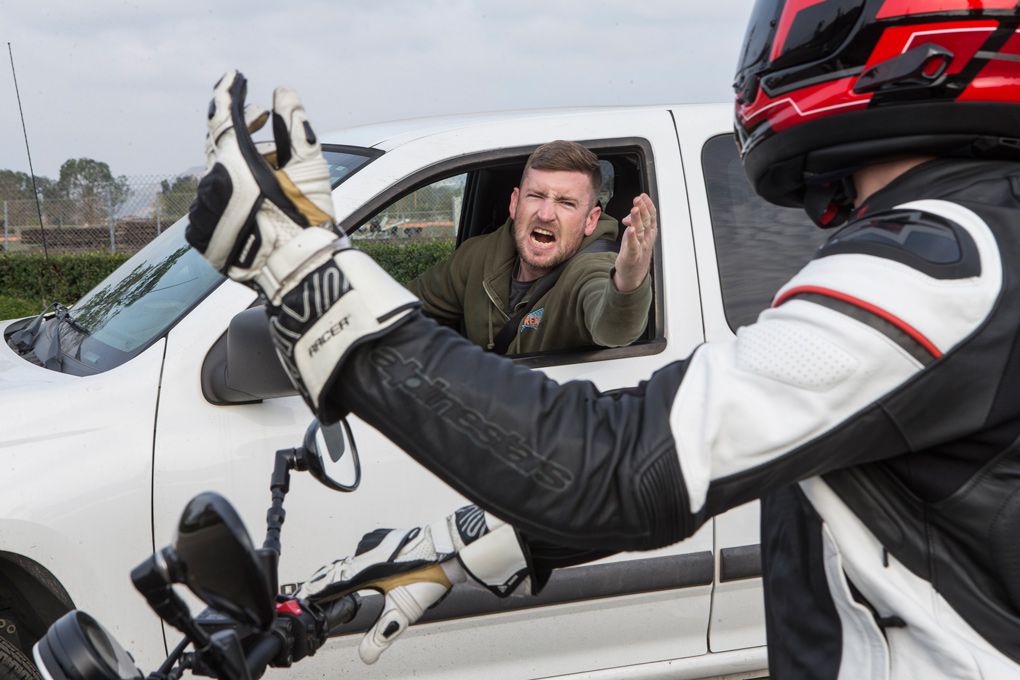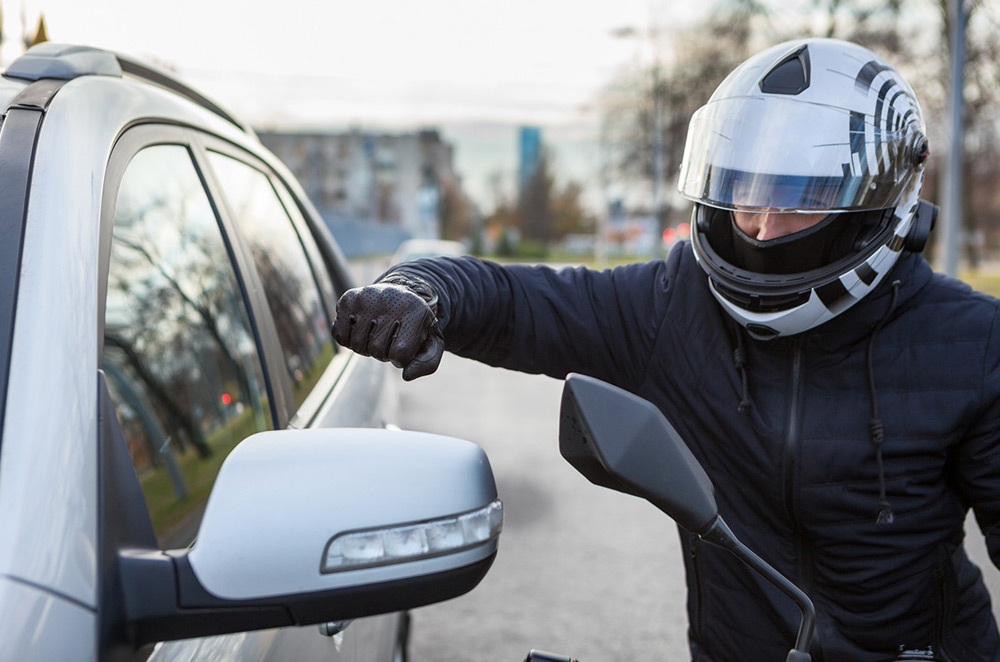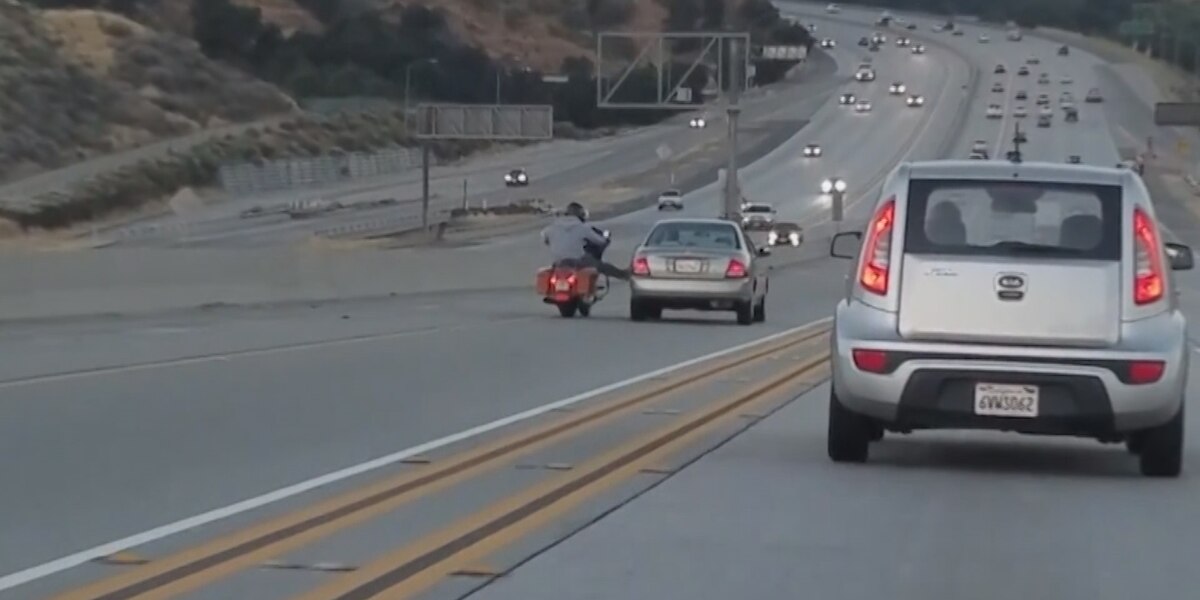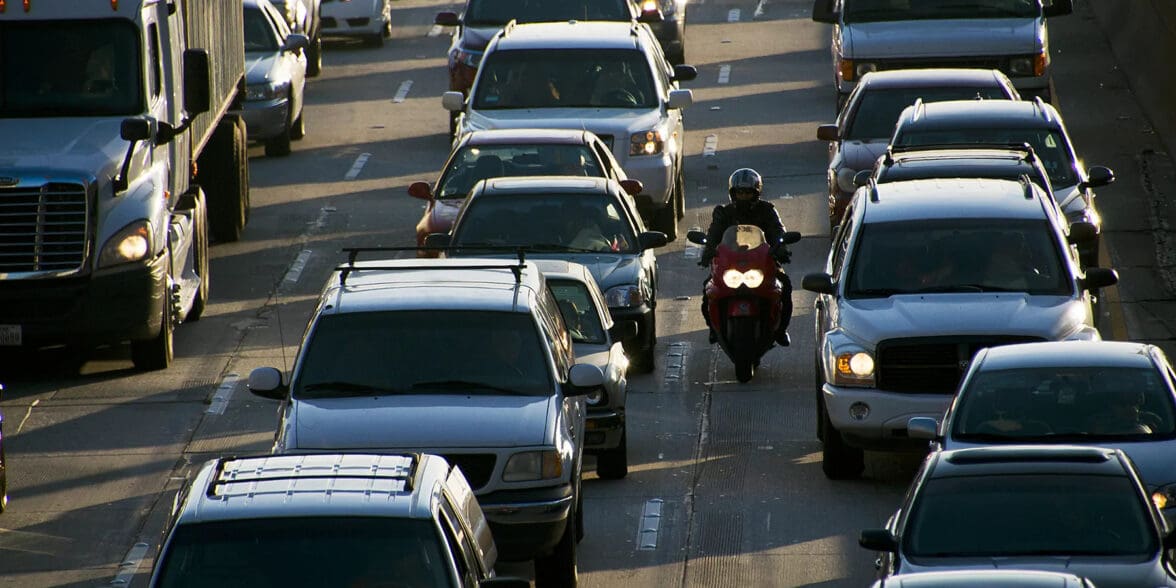YouTube is a gold mine for videos involving some form of road rage. While it’s sometimes even amusing to see a stranger so aggravated by another motorist, these incidents can often have dire consequences. As a motorcyclist, you’re incredibly vulnerable, and getting involved in an altercation with someone in a car or any larger vehicle is something you should try and avoid.
Unfortunately, there’s only so much you can do to avoid confrontation, and if you ride often, you’re bound to cross paths with an aggressive driver at some point. If you’re a motorcyclist or know someone who is, this article will talk you through how you can do your part in keeping the public roads a safer place to be on.
What Do the Numbers Say about Road Rage?
By definition, road rage is the aggressive or angry behavior exhibited by motorists. Meanwhile, the NHTSA (National Highway Traffic Safety Administration) explains aggressive driving: “The operation of a motor vehicle in a manner that endangers or is likely to endanger persons or property.”
A report from a few years ago mentioned that an important distinction is that aggressive driving is a traffic violation, while road rage can be a criminal offense. If you drive or ride long enough, you will be involved in a road rage incident. In fact, a 2016 survey by the AAA Foundation found that nearly 80 percent of drivers experienced aggression while driving that year.

That’s a significant percentage of people and the incidents that escalated dramatically resulted in regrettable circumstances. Over a seven-year period, road rage incidents were the cause of 218 murders and 12,610 injuries.
Now, compared to the 42,915 deaths that occurred in motor vehicle crashes in just 2021, that number might not seem as severe. However, there is an irrefutable difference between a death caused by an accident and one that occurs with the intent to cause harm.
Why Has There Been an Increase in Road Rage?
Some common precursors to road rage are traffic jams, delays, aggressive driving like cutting someone off, and behavioral or psychological issues. Every year, the number of vehicles on the road only increases, and the likelihood of being involved in an altercation rises proportionally.
A recent Everytown for Gun Safety Support Fund report found that 2021 was one of the worst years on record concerning road rage deaths involving guns. Last year, a person was shot and either injured or killed in a road rage incident every 17 hours, on average. Their study found that this was double the pre-pandemic average, suggesting that COVID-19, the ensuing lockdowns, and several restrictions may have increased stress and anger levels amongst motorists.
The pandemic also saw a record increase in gun sales, and their accessibility has only made things more problematic in a road rage scenario.

How to Avoid Road Rage
As we mentioned above, if you spend long enough on the road, you will be involved in a road rage situation and one that could potentially be dangerous. To be honest, the only way to altogether avoid it would be to stay off a motorcycle, but why would you resort to that?
Here are some steps you can take to reduce the chances of ending up in a potentially dangerous situation:
If You’re the Victim
- Abide by the rules of the road. You might be on a motorcycle, but drivers can be peeved if you choose to lane filter (even if done safely) in a state that does not allow it. Similarly, if you tailgate or cut someone off, it may aggravate them.
- Don’t reciprocate in a situation that might be harmful to you. If someone is being aggressive to you, remain calm and try to avoid escalating the issue.
- Stop only when necessary. If a driver is aggravated and pulls up next to you, the safest thing to do would be to try and create as much distance as possible. Stopping could lead to further confrontation.
- Lastly, wear your riding gear. If God forbid, someone in a car tries to run you off the road, wearing protective gear will increase the likelihood of you escaping with less severe injuries.

If You’re the Instigator
There are lots of ideas on how to deal with road rage, so we won’t write a novella. If you’re the one raging, consider:
- Leaving to your destination a little earlier. Several road rage incidents are caused because the aggressive driver is running late and has to be elsewhere urgently. Accounting for traffic and leaving earlier will help you avoid the stress of being late.
- Stay calm. If someone does something to annoy you, take a deep breath and try to relax. There’s no need to reciprocate their actions.
- Let minor incidents slide. Avoid honking or gesturing aggressively if another driver or rider cuts you off without inconveniencing you too much.
- Don’t get out of your vehicle. Approaching someone in a road rage situation can force them to get defensive, leading to dangerous yet avoidable outcomes.


